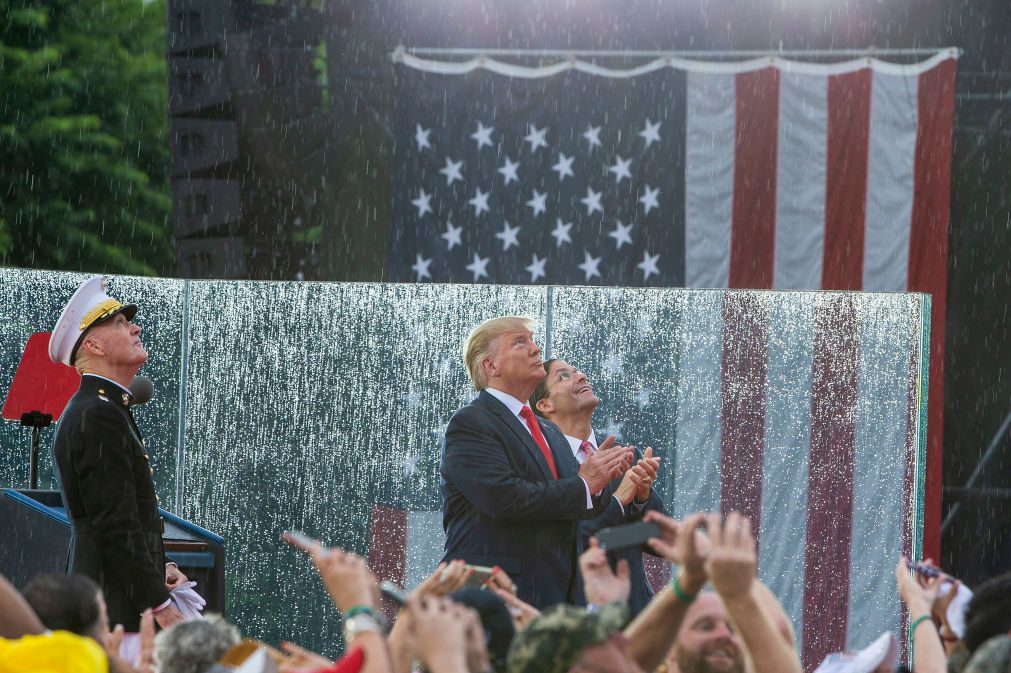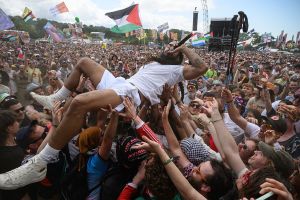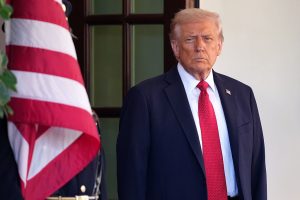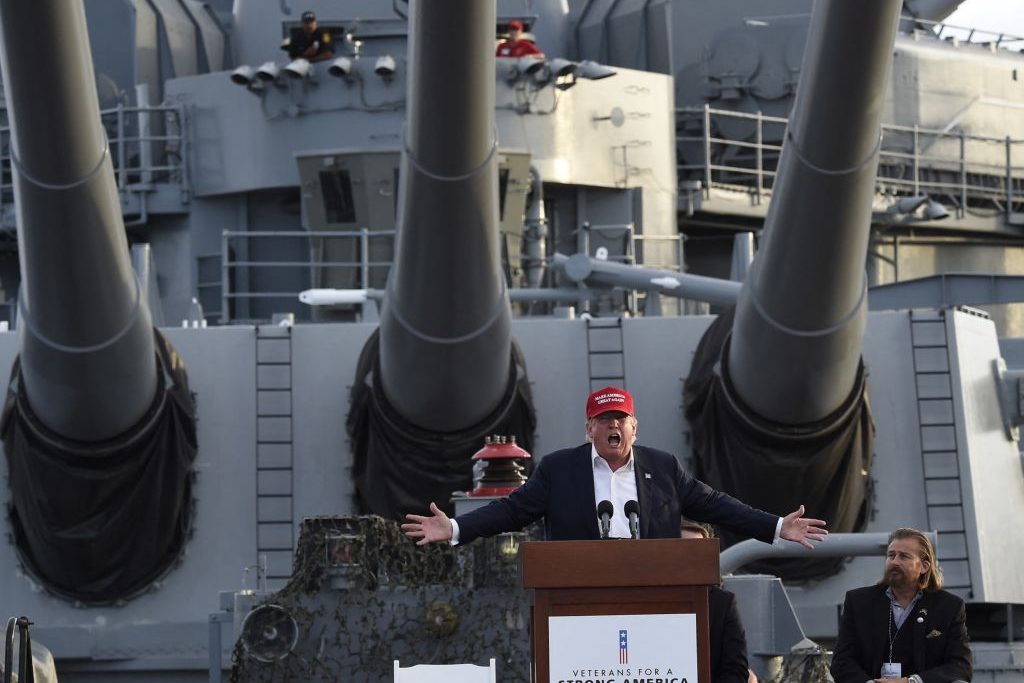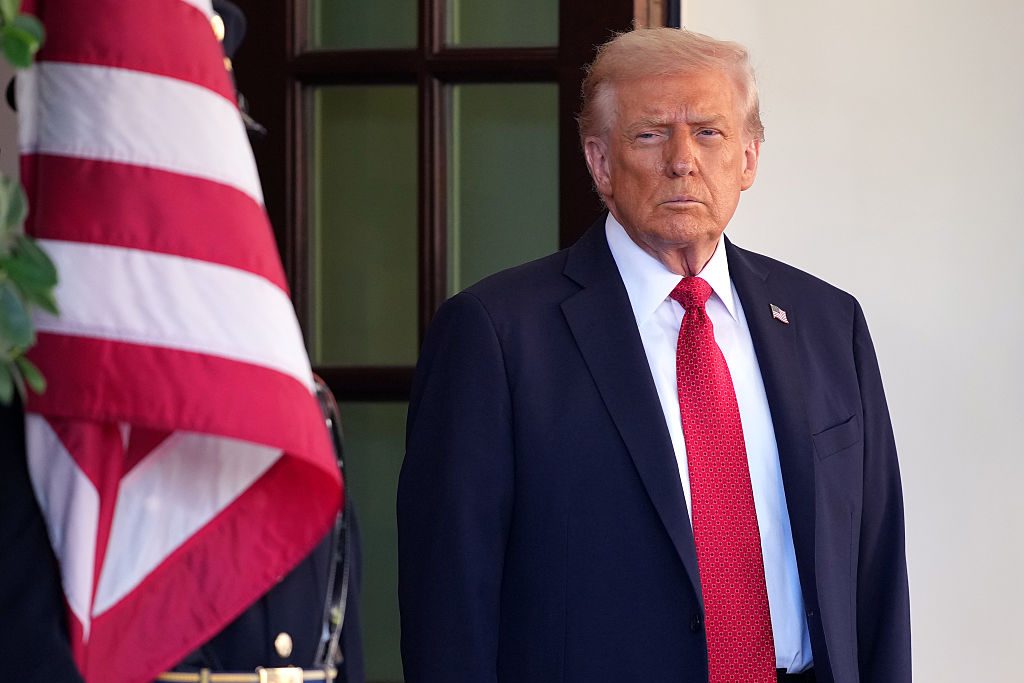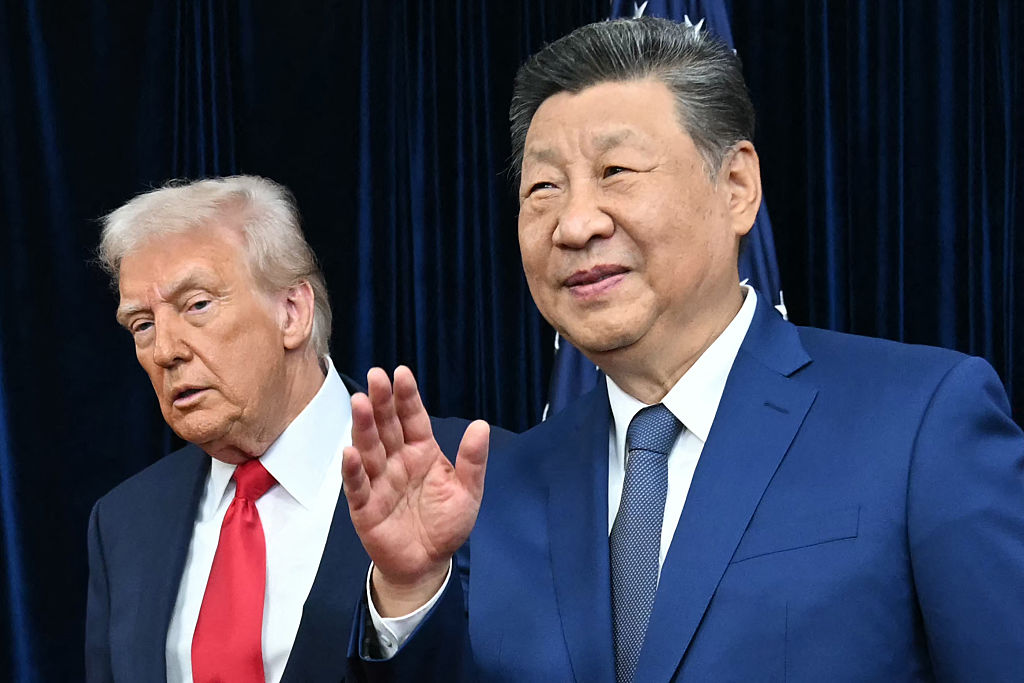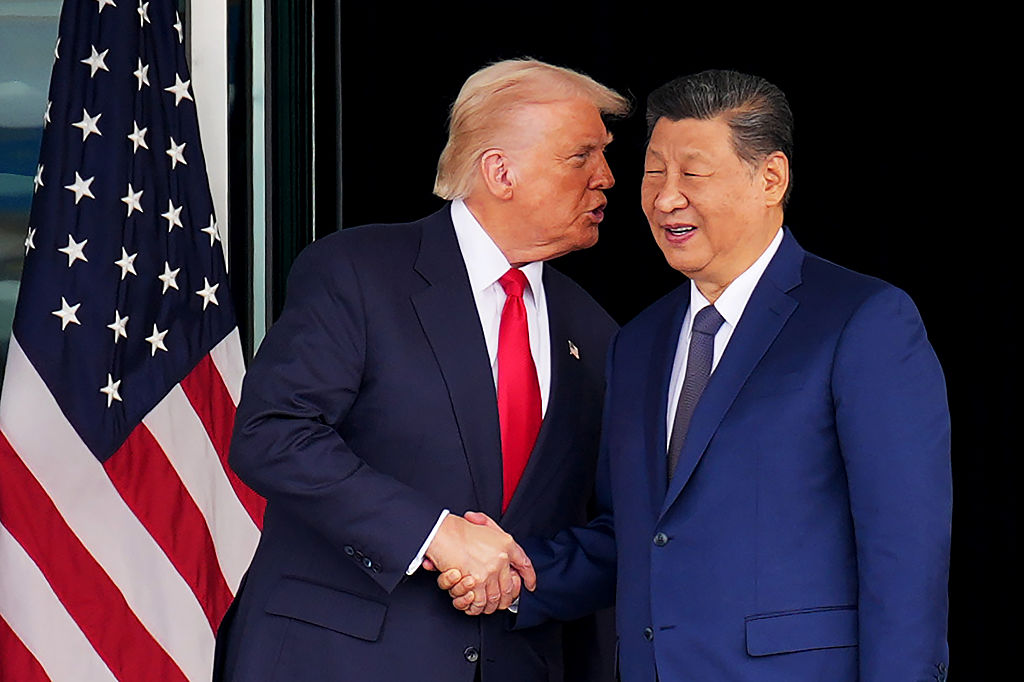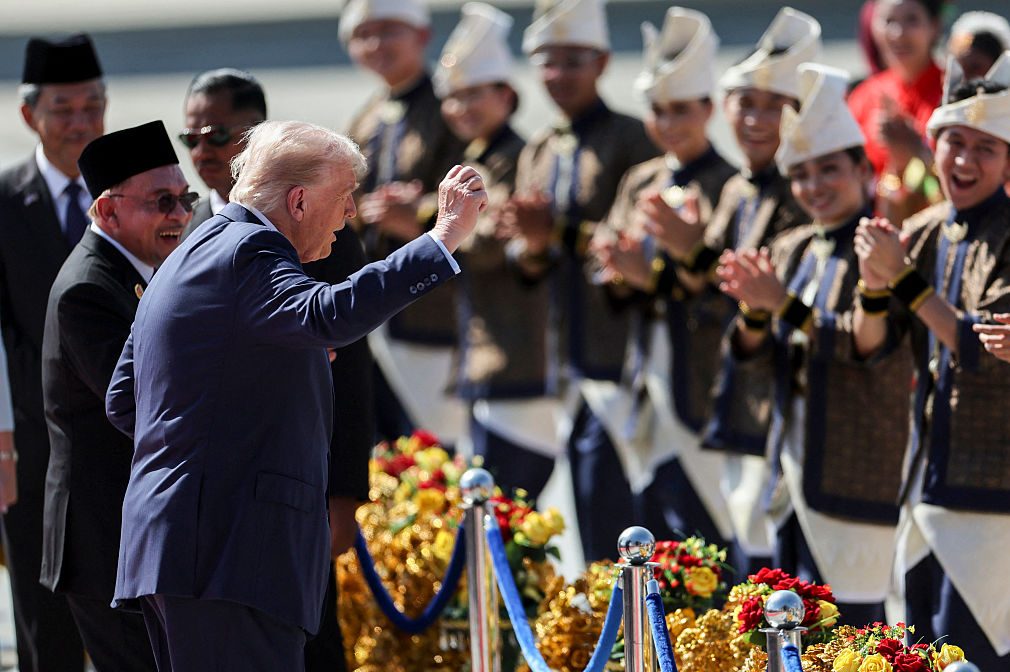To make a great success of a speech you need timing, what the ancient Greeks called kairos, you need an electric connection with your audience, and you need a bit of luck. President Trump, in his damp squib of a Fourth of July speech, had none of those things.
Kairos-wise, the Fourth of July was a near-miss: the sort of occasion that asks for and often gets rousing oratory. But in this case the resonance of the date was undermined by the suspicion that rather than honoring the national holiday the president was seeking to hijack it. As Elizabeth Warren commented tartly, ‘If he’s going to do a campaign event, then it should be paid for by his campaign contributions. It should not be paid for by the American taxpayer.’
Then there was the electric connection with the audience. Nobody looks commanding if, on what’s supposed to be a ceremony of maximum bombast, TV cameras are beaming the patchy crowd, the empty spaces of a horribly disappointing turnout, around the world. Energy in oratory moves in vicious and virtuous circles: a huge crowd feeds on its own enthusiasm; a feeble one tends to do the opposite.
And finally, there was luck. It poured with rain. The ceremony looked grim, and it didn’t help at all that a large pane of glass interposed between the president and the television cameras. There was, literally, a barrier between speaker and audience – and it was running with water like a wet windowpane. Pericles himself would have struggled to perk his auditors up in such circumstances.
That downer on the energy was reflected in the peculiar cadences of Trump’s delivery – typically a long run of slightly strained stresses ending with a dying fall. ‘Today we come together as one nation in this very special salute to Amer’ca…’ He hits that rhythm regardless of what the sentence actually says. It makes him sound like he’s reading something out he doesn’t really understand. And it makes him sound exhausted.
And then of course there was the speech itself. Trump’s strength as an orator is the low style: the improvisational, conversational, snarky, aggressive style that he showed on the campaign trail. He may often be incoherent but he’s thrillingly unpredictable and he sounds authentic. When he’s given a script in the high style – reading grandiloquent presidential boilerplate off an autocue – he struggles terribly.
And he can’t resist going off script here and there – which in a more gifted orator would give a speech the freshness and sprezzatura of something spontaneous, but in Trump does not because the contrast between the two styles only points up how jarringly inauthentic the script is. That’s fatal to any speaker’s ethos appeal.
Take the following section. It has become instantly notorious for the ignorance of supposing that airports were an important strategic objective in the American revolution; but that’s the symptom of something wider.
‘The Continental Army suffered a bitter winter at Valley Forge, found glory across the waters of the Delaware and seized victory from Cornwallis of Yorktown. Our Army manned the air, it ran the ramparts, it took over the airports, it did everything it had to do.’
Nobody could believe that the first sentence, with its grand-sounding tricolon, is spontaneous. And then you can see him going off script with the clumsy meaninglessness of ‘manned the air’ and ‘ran the ramparts’ the heroic absurdity of ‘took over the airports’, and the run-out-of-things-to-say vagueness of ‘did everything it had to do’.
We forgive speakers for using scripts. We enjoy the high style. We are prepared to suspend disbelief if the speaker seems to own the words. But if as here his improvisations serve to show how little ownership he has of the main text, and his misreadings (‘of Yorktown’ for ‘at Yorktown’; ‘McKendry’ for ‘McHenry’) suggest he doesn’t even know the history, that effect torpedoes any sense that you’re listening to a speaker who either means what he says or knows what he’s talking about.



